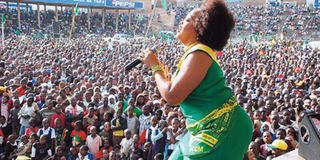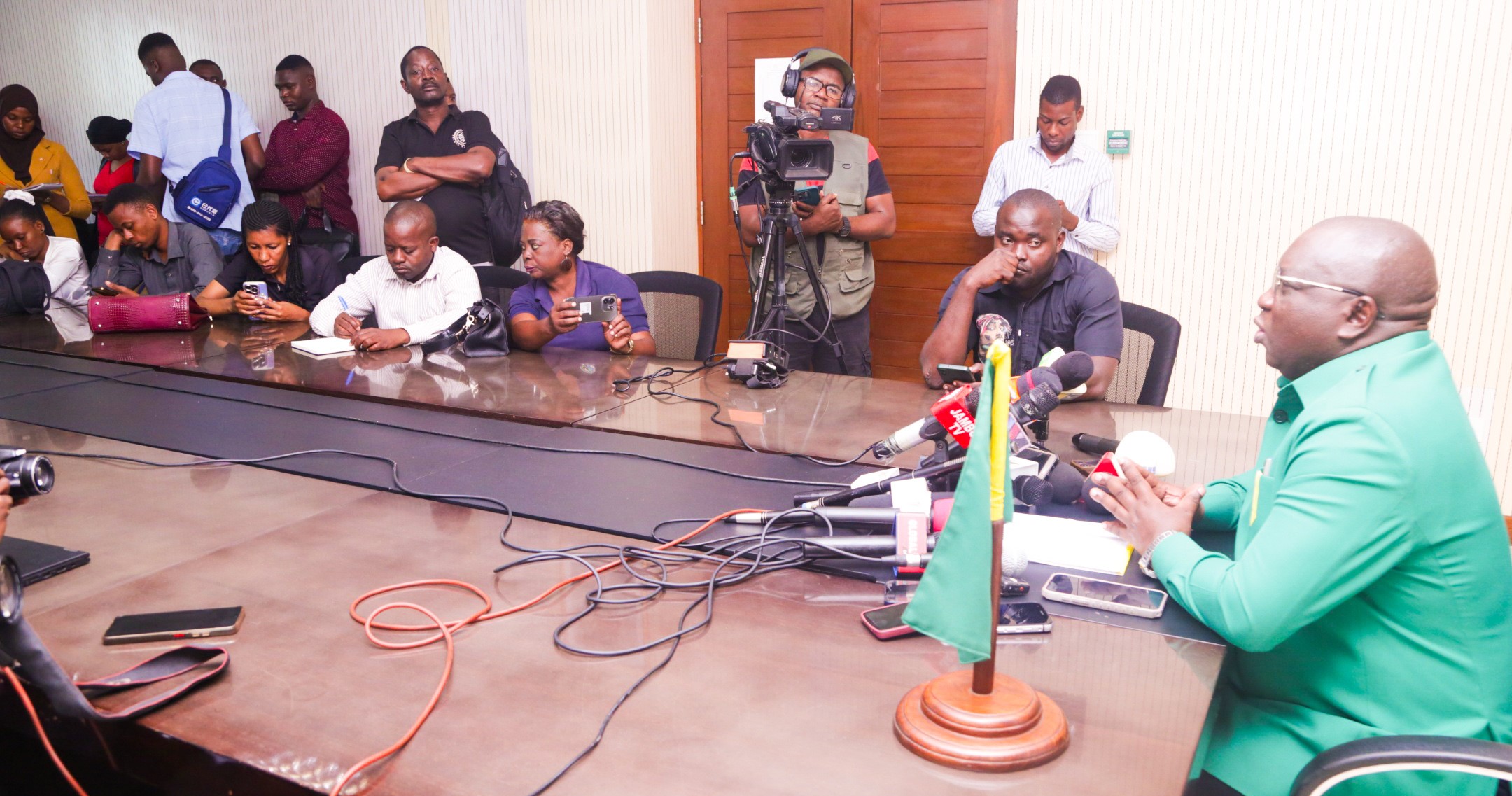The tricky business of campaign gigs

Hafsa Kazinja perfom at a previous political rally in Mbeya City during the 2010 campaign
What you need to know:
As a norm, these gatherings involve entertainment from local stars as they accompany politicians in their quest for power, a process that some say is actually an endorsement.
The General Election is about 120 days away and as you might have noticed informal campaigns have kicked off at a pace hitherto unseen in Tanzania.
As a norm, these gatherings involve entertainment from local stars as they accompany politicians in their quest for power, a process that some say is actually an endorsement.
The musicians on such missions vociferously back whichever candidate they favour even if it means putting their careers on the line.
The frequency of musicians endorsing candidates, forces a new understanding of a political reality in which political and musical personalities now overlap to a much greater extent than ever before.
Yet, despite the trend among musicians to vocally endorse or schedule an appearance with a candidate to support the campaign, this does not appear to motivate voters.
“The only area where musicians do seem to be able to affect campaigns, and increase the probability of their desired candidate getting elected, is by encouraging greater voter participation,” Johan Hahn of the Harvard Political Review once wrote.
Some at such events go an extra mile by wearing party colours with slogans in a show of unwavering support for the future leaders in return for a promise of huge bonuses.
Clients or candidates believe that endorsements by such celebrities are a valuable asset; however, media and pundits are skeptical, saying that such endorsements have little or no effect on vote share.
The deals according to insiders and power brokers are usually very lucrative as the politicians need the audiences to sell their manifestos to.
“The campaigns offer the artistes some sort of harvest period given the fact that it is something that happens only once in five years, charges are usually higher than the normal shows,” says one event organiser.
The role of artists in creating cultural buzz cannot therefore be trivialised and as more musicians endorse a given politician, the campaign takes on a palpable energy that attracts even more attention; as such, it can be a self-perpetuating phenomenon.
And this is exactly what a campaign is all about; seeking attention!
“Music has that power of pulling crowds and keeping them together even when there is nothing musical in the gathering and that is why the politicians choose to become bed fellows with artistes,” she says.
The booking fees during this period vary; there are those who want artistes to compose songs for them, others just plain entertainment whereas there are those who want the artistes to change lyrics to accommodate party ideologies.
Last term, artistes such as Marlaw, Diamond, Hafsa Kazinja, Bushoke and ‘MwanaFA’ were at the heart of multiple CCM rallies across the country as the party recorded a resounding victory at the end of the campaigns.
But after the dust had settled some of these artistes found it difficult to make a comeback as gigs became hard to come-by especially in an industry where artistes don’t earn much in terms of royalties.
“ Take a look at artistes such as Marlaw, Bushoke, and Hafsa Kazinja, as much as they were probably at the end of their sell-by dates they are nowhere to be seen, some have opted for employment elsewhere,” says a close source.
An artiste like Marlaw has composed quite a number of catchy tunes which should have translated into gigs but this has not happened.
The bookers find some of them less appealing especially after they used their hit singles to campaign for the respective parties, something that put into question their loyalty for their fans who were not inclined to party politics.
The temptation of using their hit singles to chant party slogans proved too sweet a bait that they easily swallowed only to haunt them.
“These songs have attachment to people’s lives so the moment you change the lyrics to suit some other interest even those fans who madly loved you find it difficult to associate with your songs any longer,” says one male artiste.
According to him, artistes are supposed to be non partisan if they are to continue being in business otherwise the act of changing lyrics would translate into an endorsement.
Some say it is important to differentiate between being members of a particular political party and their careers as musicians.
“It does not mean that as artistes we are barred from enlightening the public politically using our talent. I have for example produced many songs on politics and democracy in the past but I have not done so because of my inclination to a certain party,” Kalapina told The Beat in an interview.
Those close to artistes such as Clouds FM’s Ruge Mutahaba says they are trying hard to educate artistes on how to draw the line between career and politics.
“Some of these artistes we have groomed them from an early age and therefore it is our duty as their guardians to educate them on the intricacies of this business,” says Ruge whose THT has produced a number of high profile Bongo Flava artistes such as Lina.
He adds: what we have advised is that should such a request come up then they compose new songs that focus on their clients’ need and not to run for quick fixes that eventually backfires. But even as the cautionary words come there are some who just won’t take heed as they claim that this is the only opportunity to raise capital to further their careers.
“The only reason I will accept to perform at these rallies is because it offers me an opportunity to invest in my career,” says one up and coming artiste.
Celebrity endorsement of politicians is not anything new in the world including the US, during the 2012 elections Jay Z and Bruce Springsteen were in for Barack Obama.




